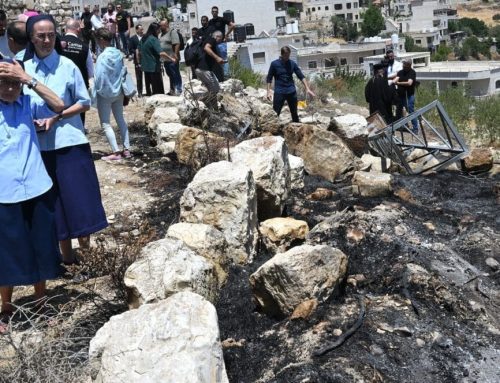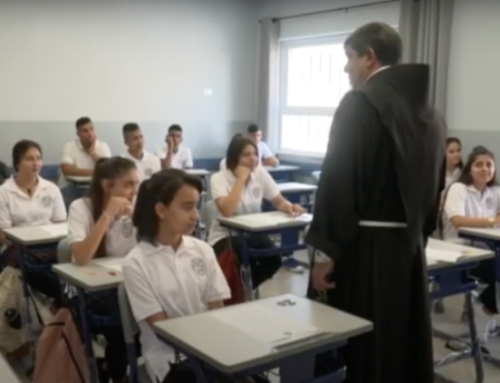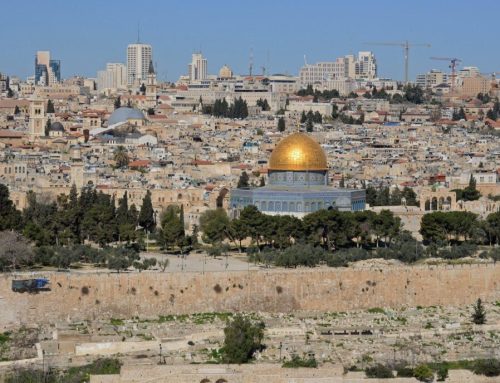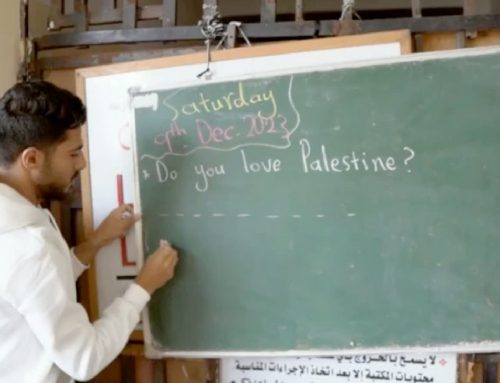The Vatican has confirmed that Pope Francis will go ahead with a trip to Egypt later this month, despite the twin bombings of Coptic churches on Palm Sunday and a subsequent state of emergency being declared in the country.
The attacks are expected to give fresh impetus to the visit, which is partly aimed at showing solidarity with the country’s beleaguered Christian minority.
Pope Francis is visiting Cairo on April 28 and 29 at the invitation of the Coptic Pope, Tawadros II, and the grand imam of the mosque of al-Azhar, Sheikh Ahmed Mohamed el-Tayeb, as well as Catholic bishops and the Egyptian government.
Catholics make up less than 0.5 per cent of Egypt’s population of 95 million. About one in 10 are Christian and they are overwhelmingly Coptic Orthodox.
The country’s three-month state of emergency began yesterday at 1pm following the attacks in Alexandria and Tanta, which killed at least 47 people and injured more than 100 at the weekend.
Egypt is now undergoing the first state of emergency since president Abdel Fatah al-Sisi seized power in 2013, in a move which will increase the powers of Egyptian security forces.
Islamic State claimed that two Egyptian suicide bombers were responsible for the blasts and threatened further attacks. Sisi warned that the war against Islamic extremists would be ‘long and painful’.
Egyptian Christian leaders have been warning of inadequate protection in the face of attacks. Bishop Anba Angaelos, the head of the Coptic Orthodox Church in the UK, warned before Sunday’s bombings: ‘At the highest level, a lot of attention and care is given to this issue. But the problem is at the local security level.’
He told the Guardian: ‘Reports [of attacks] are not taken seriously or investigated robustly. There are a lack of prosecutions and people not being held to account. That almost reinforces a sense of impunity.’
Under Egypt’s new state of emergency, the government has been granted expanded powers including the ability to raid homes without a warrant, curtail political opposition, convene emergency courts, curb press freedoms and monitor private communications.
Meanwhile, monitoring groups have redoubled their efforts to track government violations of human rights and civil liberties. They are concerned that a lack of clarity around the wording of the law would allow the government to target critics and political opponents rather than the perpetrators of the attack.
‘We see dozens of reports of enforced disappearances, torture and extrajudicial killings occurring in Egypt, even without the emergency law,’ said Ahmed Abdallah, the head of the board of trustees of the Egyptian Commission for Rights and Freedoms, which monitors forced disappearances in Egypt. ‘If this law is intended to harass us or frighten us – we are not afraid.’
Gen Yehia Kidwany, the deputy head of Egypt’s parliamentary defence and national security committee, said the state of emergency ‘aims at disabling any legal excuses that would let a suspect escape security’. He added: ‘Ordinary peaceful citizens won’t feel any difference unless a state of curfew is declared, which is a decision more easily taken under a state of emergency.’
The Pope’s visit is ‘very significant’ for both Catholic and Orthodox communities, said Bishop Angaelos. ‘It’s a wonderful chance for Francis to practically show support for Christians in Egypt and in the Middle East.’
The bishop has said that lists of churches and individuals have been released as ‘desirable targets’ by terrorist groups. ‘Innocent men, women and children have had their lives brutally and tragically ended for no other reason except that they are Christian.’
Last December, 29 people were killed in a bombing at St Peter’s church, near the main Coptic Christian cathedral in Cairo.
In February, 40 Christian families fled Al Arish in northern Sinai after the murder of seven people.
According to Jantzen Garnett, an expert on Isis with the Navanti Group analytics company, it was not until December 2016 that the Islamic State began a systematic campaign to target Coptic Christians in Egypt.
He told Agence France-Presse: ‘As the Islamic State is squeezed in Iraq and Syria it often conducts spectacular attacks elsewhere in an attempt to regain the narrative, boost morale and win recruits.’
Security is expected to be tight for the Papal visit, which includes a speech to an international peace conference and a celebration of Mass with the small Catholic community in Cairo.
Angaelos said: ‘The world we live in now means there is always a risk. Someone of the profile of Pope Francis – both the head of a church and a head of state – means there will be security protocols in place to protect and safeguard him.’
Source: Christian Today






